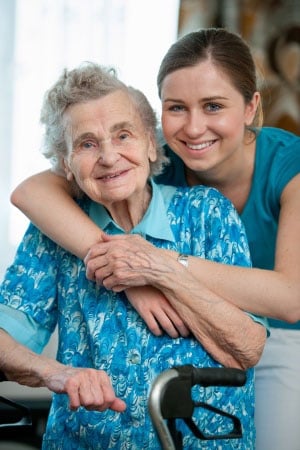 As any caregiver will tell you, providing in-home care for aging parents or for loved ones who are dealing with cognitive memory loss, is more than a full-time job. Often, fatigue, stress and financial strains can become an issue for even the most patient caregivers. That can reduce not only the quality of care that you are able to provide, but negatively affect your own health, too.
As any caregiver will tell you, providing in-home care for aging parents or for loved ones who are dealing with cognitive memory loss, is more than a full-time job. Often, fatigue, stress and financial strains can become an issue for even the most patient caregivers. That can reduce not only the quality of care that you are able to provide, but negatively affect your own health, too.
But there are powerful tools for caregivers that can help you provide your loved one with the best care possible, without impacting your own wellbeing.
1. In-home therapy and in-home nursing
Shuttling aging parents back and forth to many different doctor appointments can be a large drain on time and resources. That can be exacerbated if your parent requires physical rehab, occupational therapy or memory care. Many of these services, however, can be arranged on an outpatient basis, to take place in your home.
In-home nursing is also an option if you need assistance providing for your loved one’s medical needs or daily necessities.
Say, for example, that your father is a bed-bound, post-amputation diabetic. He requires daily finger stick blood screenings (FSBS), Glucophage doses, and insulin injections and must be assisted to the commode and to the bath. An in-home nurse can be arranged to come to your home daily and monitor vitals, administer medications or injections, and provide lifting, toileting and bathing assistance.
2. Respite care
Because you are, in fact, a human being, there are going to be times when you need a break—for the sake of your own health and wellbeing. But there’s no reason that should make you feel guilty.
Caregiver fatigue, also known as “caregiver burnout,” is a very real condition that impacts the ability of a caregiver to function and provide adequate care. Virtually all senior care experts would agree that it’s beneficial—for both caregivers and those they care for—to have regular periods of times away from the immense responsibility of ensuring the health, safety, and wellbeing of a loved one.
And respite care can provide that opportunity.
Respite care programs come in many forms—many of which are offered as day programs at retirement communities. But there are some models that provide in-home sitters who allow the primary caregiver to be away from home for a portion of the day— long enough to go to work, run errands, or just take a few hours of personal time every day.
3. Geriatric care managers
Hiring a professional senior care expert, such as a geriatric care manager, to consult on or actively manage your loved one’s care can alleviate stress and improve the quality of care your relative receives.
A geriatric care manager will sit down with you and your loved one to develop a workable plan for in-home care now. With a care manager, you can map out a formula for your loved one’s future care— including any contingency plans for a later move to assisted living or a skilled nursing facility, if such becomes a necessity. A geriatric care manager can also:
- Monitor your parent’s medication regimen to ensure they are complying with treatment, not missing medications or experiencing any adverse drug interactions.
- Continually evaluate your loved one’s physical, cognitive and emotional function and arrange outpatient support, such as physical or occupational therapy, mental health counseling, or specialized memory care, as necessary.
- Coordinate in-home nursing services, personal care assistance and ancillary support services, such as Meals on Wheels deliveries.
- Help you and your loved one negotiate the often-complicated process of health coverage pre-authorizations and appeals, help your loved one to evaluate and apply for Medicare and Part D plans during annual enrollment and steer you toward financial assistance programs when health care costs exceed ability to pay.
A geriatric care manager’s goal is to ensure your loved one receives care at home for as long as possible, and to make life easier for you as a caregiver.
You don’t have to go it alone.
Caring for an aging parent can be isolating — especially if you do not have strong support from other family members or friends. It is important that you take advantage of all the resources available to you to ease the burden under which you find yourself, and to make the care you provide the best it can be.












